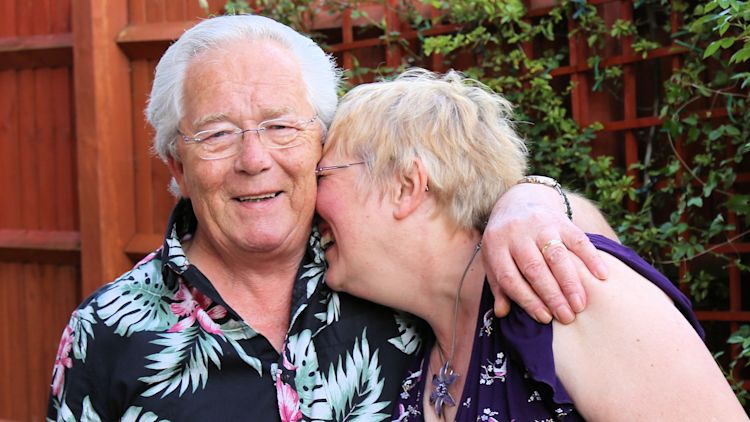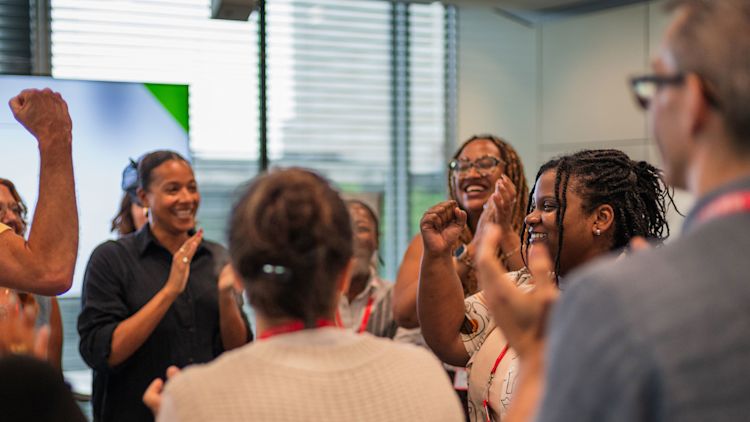
When Chris began falling over he went to the doctors looking for a diagnosis. But they still cannot give him the answers about what is actually wrong with him.
After a brain scan they told him he was having mini-strokes which have severely affected his memory.
In the UK, 52 per cent of people with dementia do not receive a formal diagnosis according to the Alzheimer’s Society. And the length of time a person with dementia has to wait to receive a diagnosis varies hugely depending on where they live, from two weeks to over six months.
The word dementia describes a set of symptoms that may include memory loss and difficulties with thinking, problem-solving or language.
“It is difficult not having a clear diagnosis,” Chris said. “On one hand you don’t want to have dementia, but not having a label is a handicap because it means it’s harder for others to understand what you’re going through.”
Chris had to retire from work early due to his memory problems and he developed depression. That in turn affected his memory, which then affected his mood.
“When you have a problem like this you need a hook to hang it on, if you have a diagnosis you can get an idea of how things are going to develop and how you can stall the progress of the condition. It’s hard not knowing what the future holds.”
Life became very difficult for Chris. “We’ve had to put up signs to remind me to lock the front door and take my phone and wallet when I go out,” he said.
“I’ve been shopping and ended up with a trolley full of food and then realised I’ve left my money at home.”
The Alzheimer’s Society has said there will be one million people living with dementia in the UK by 2025 and one in six people aged 80 and over already have dementia.
Since Comic Relief began it has funded over 60 dementia related projects to a total of £4.5m.
This week, during Dementia Awareness Week, Comic Relief announced that along with the Joseph Rowntree Foundation and the Life Changes Trust, it will invest almost £1.1 million to continue the successful Dementia Engagement and Empowerment (DEEP) UK project.
DEEP supports groups which try to change services and policies that affect the lives of people with dementia.
When Chris developed his memory problems his life was greatly affected. He lost all his confidence in social situations and felt so uncomfortable during conversations with others that he didn’t want to go out of the house anymore.
He hit an all-time low and tried to take his own life. Fortunately, his wife Carol found him.
She took him to the Tibbs Dementia Foundation, a community project which is dedicated to providing services and activities for people living with dementia, as well as their carers and family.
“It changed my life,” Chris said. “From the minute I walked in I felt totally different. I could talk to people and carry on conversations without feeling embarrassed about stuttering or pausing. It’s given me my confidence back.”
Through Tibbs’ “Clear Voices “ project Chris got involved with On Our Radar, a project funded by Comic Relief which aims to enable people at the early stages of dementia to record and share details about their daily lives through an initiative called “Dementia Diaries”.
"It made me feel good to be involved in this project,” he said.
“It’s good to feel that people are interested in what I have to say. I'd not have felt confident to do this until now, for fear of drying up or saying the wrong word. Knowing that I can re-record, or that my words will be edited if I've got in a muddle is important to me.
“It’s helped to give me a voice and an outlet because it’s important for people to understand, whether you have a diagnosis or not, you may have a problem but it’s not the end of the world.
“We want to prove to people that you can still have a good life.”
For more information about DEEP go to dementiavoices.org.uk(opens in new window) and for more information about On Our Radar go to onourradar.org(opens in new window).


